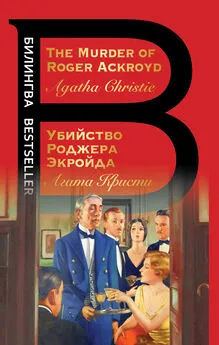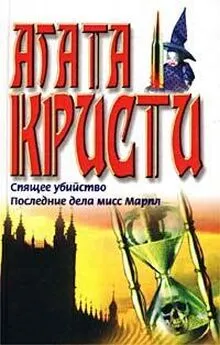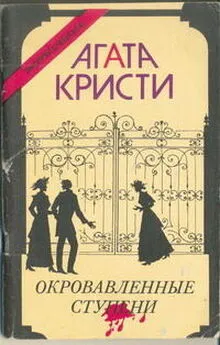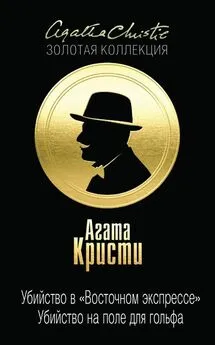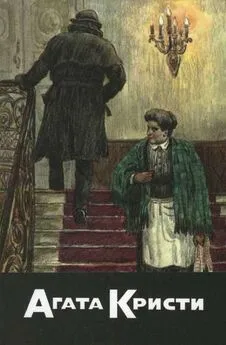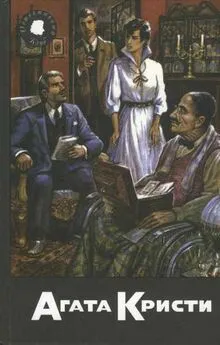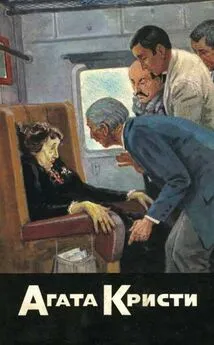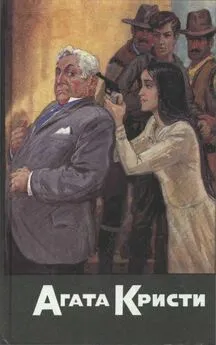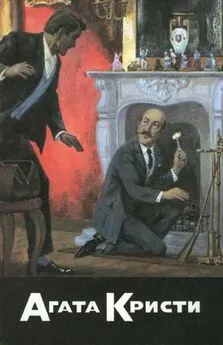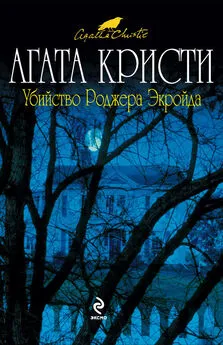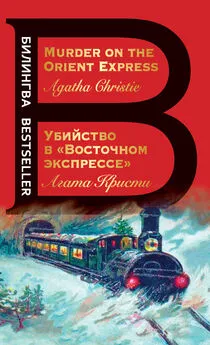Агата Кристи - The Murder of Roger Ackroyd / Убийство Роджера Экройда
- Название:The Murder of Roger Ackroyd / Убийство Роджера Экройда
- Автор:
- Жанр:
- Издательство:неизвестно
- Год:2022
- Город:Москва
- ISBN:978-5-04-166489-3
- Рейтинг:
- Избранное:Добавить в избранное
-
Отзывы:
-
Ваша оценка:
Агата Кристи - The Murder of Roger Ackroyd / Убийство Роджера Экройда краткое содержание
В формате PDF A4 сохранен издательский макет.
The Murder of Roger Ackroyd / Убийство Роджера Экройда - читать онлайн бесплатно ознакомительный отрывок
Интервал:
Закладка:
‘His duties he fulfils punctiliously. Of that I am sure. In what manner does he amuse himself? Does he go in for le sport?’
‘Private secretaries haven’t much time for that sort of thing,’ said colonel Melrose, smiling. ‘Raymond plays golf, I believe. And tennis in the summer time.’
‘He does not attend the courses – I should say the running of the horses?’
‘Race meetings? No, I don’t think he’s interested in racing.’
Poirot nodded and seemed to lose interest. He glanced slowly round the study.
‘I have seen, I think, all that there is to be seen here.’
I, too, looked round.
‘If those walls could speak,’ I murmured.
Poirot shook his head.
‘A tongue is not enough,’ he said. ‘They would have to have also eyes and ears. But do not be too sure that these dead things’-he touched the top of the bookcase as he spoke-‘are always dumb. To me they speak sometimes- chairs, tables – they have their message!’
He turned away towards the door.
‘What message?’ I cried. ‘What have they said to you today?’
He looked over his shoulder and raised one eyebrow quizzically.
‘An opened window,’ he said. ‘A locked door. A chair that apparently moved itself. To all three I say “Why?” and I find no answer.’
He shook his head, puffed out his chest, and stood blinking at us. He looked ridiculously full of his own importance. It crossed my mind to wonder whether he was really any good as a detective. had his big reputation been built up on a series of lucky chances?
I think the same thought must have occurred to colonel Melrose, for he frowned.
‘Anything more you want to see, M. Poirot?’ he inquired brusquely.
‘You would perhaps be so kind as to show me the silver table from which the weapon was taken? After that, I will trespass on your kindness no longer.’
We went to the drawing-room, but on the way the constable waylaid the colonel, and after a muttered conversation the latter excused himself and left us together. I showed Poirot the silver table, and after raising the lid once or twice and letting it fall, he pushed open the window and stepped out on the terrace. I followed him.
Inspector Raglan had just turned the corner of the house, and was coming towards us. His face looked grim and satisfied.
‘So there you are, M. Poirot,’ he said. ‘Well, this isn’t going to be much of a case. I’m sorry, too. A nice enough young fellow gone wrong.’
Poirot’s face fell, and he spoke very mildly.
‘I’m afraid I shall not be able to be of much aid to you, then?’
‘Next time, perhaps,’ said the inspector soothingly. ‘Though we don’t have murders every day in this quiet little corner of the world.’
Poirot’s gaze took on an admiring quality.
‘You have been of a marvellous promptness,’ he observed. ‘How exactly did you go to work, if I may ask?’ ‘certainly,’ said the inspector.
‘To begin with – method. That’s what I always say – method!’
‘Ah!’ cried the other. ‘That, too, is my watchword. Method, order, and the little grey cells.’
‘The cells?’ said the inspector, staring.
‘The little grey cells of the brain,’ explained the Belgian.
‘Oh, of course; well, we all use them, I suppose.’
‘In a greater or lesser degree,’ murmured Poirot. ‘And there are, too, differences in quality. Then there is the psychology of a crime. One must study that.’
‘Ah!’ said the inspector, ‘you’ve been bitten with all this psycho-analysis stuff? Now, I’m a plain man-’
‘Mrs Raglan would not agree, I am sure, to that,’ said Poirot, making him a little bow.
Inspector Raglan, a little taken aback, bowed.
‘You don’t understand,’ he said, grinning broadly. ‘Lord, what a lot of difference language makes. I’m telling you how I set to work. first of all, method. Mr Ackroyd was last seen alive at a quarter to ten by his niece, Miss Flora Ackroyd. That’s fact number one, isn’t it?’
‘If you say so.’
‘Well, it is. At half-past ten, the doctor here says that Mr Ackroyd had been dead at least half an hour. you stick to that, doctor?’
‘Certainly,’ I said. ‘Half an hour or longer.’
‘Very good. That gives us exactly a quarter of an hour in which the crime must have been committed. I make a list of everyone in the house, and work through it, setting down opposite their names where they were and what they were doing between the hour of 9.45 and 10 p. m.’
He handed a sheet of paper to Poirot. I read it over his shoulder. It ran as follows, written in a neat script:
Major Blunt – In billiard room with Mr Raymond. (Latter confirms.)
Mr Raymond – Billiard room. (See above.)
Mrs Ackroyd-9.45 watching billiard match. Went up to bed 9.55. (Raymond and Blunt watched her up staircase.)
Miss Ackroyd – Went straight from her uncle’s room upstairs. (Confirmed by Parker, also housemaid, Elsie Dale.)
Servants:
Parker – Went straight to butler’s pantry. (Confirmed by housekeeper, Miss Russell, who came down to speak to him about something at 9.47, and remained at least ten minutes.)
Miss Russell – As above. Spoke to housemaid, Elsie Dale, upstairs at 9.45.
Ursula Bourne – (parlourmaid) – In her own room until 9.55. Then in Servants’ Hall.
Mrs Cooper – (cook) – In Servants’ Hall.
Gladys Jones – (second housemaid) – In Servants’ Hall.
Elsie Dale – Upstairs in bedroom. Seen there by Miss Russell and Miss Flora Ackroyd.
Mary Thripp (kitchenmaid) – Servants’ Hall.
‘The cook has been here seven years, the parlourmaid eighteen months, and Parker just over a year. The others are new. except for something fishy about Parker, they all seem quite all right.’
‘A very complete list,’ said Poirot, handing it back to him. ‘I am quite sure that Parker did not do the murder,’ he added gravely.
‘So is my sister,’ I struck in. ‘And she’s usually right.’
Nobody paid any attention to my interpolation.
‘That disposes pretty effectually of the household,’ continued the inspector. ‘Now we come to a very grave point. The woman at the lodge – Mary Black – was pulling the curtains last night when she saw ralph Paton turn in at the gate and go up towards the house.’
‘She is sure of that?’ I asked sharply.
‘Quite sure. She knows him well by sight. he went past very quickly and turned off by the path to the right, which is a short cut to the terrace.’
‘And what time was that?’ asked Poirot, who had sat with an immovable face.
‘Exactly twenty-five minutes past nine,’ said the inspector gravely.
There was a silence. Then the inspector spoke again.
‘It’s all clear enough. It fits in without a flaw. At twentyfive minutes past nine, captain Paton is seen passing the lodge; at nine-thirty or thereabouts, Mr geoffrey raymond hears someone in here asking for money and Mr Ackroyd refusing. What happens next? captain Paton leaves the same way – through the window. he walks along the terrace, angry and baffled. he comes to the open drawing-room window. Say it’s now a quarter to ten. Miss flora Ackroyd is saying goodnight to her uncle. Major Blunt, Mr raymond, and Mrs Ackroyd are in the billiard room. The drawingroom is empty. he steals in, takes the dagger from the silver table, and returns to the study window. he slips off his shoes, climbs in, and – well, I don’t need to go into details. Then he slips out again and goes off. hadn’t the nerve to go back to the inn. he makes for the station, rings up from there-’
‘Why?’ said Poirot softly.
I jumped at the interruption. The little man was leaning forward. his eyes shone with a queer green light. for a moment Inspector raglan was taken aback by the question.
‘It’s difficult to say exactly why he did that,’ he said at last. ‘But murderers do funny things. you’d know that if you were in the police force. The cleverest of them make stupid mistakes sometimes. But come along and I’ll show you those footprints.’
We followed him round the corner of the terrace to the study window. At a word from Raglan a police constable produced the shoes which had been obtained from the local inn. The inspector laid them over the marks.
‘They’re the same,’ he said confidently. ‘That is to say, they’re not the same pair that actually made these prints. he went away in those. This is a pair just like them, but older – see how the studs are worn down?’
‘Surely a great many people wear shoes with rubber studs in them?’ asked Poirot.
‘That’s so, of course,’ said the inspector. ‘I shouldn’t put so much stress on the footmarks if it wasn’t for everything else.’
‘A very foolish young man, captain Ralph Paton,’ said Poirot thoughtfully. ‘To leave so much evidence of his presence.’
‘Ah! well,’ said the inspector, ‘it was a dry, fine night, you know. he left no prints on the terrace or on the gravelled path. But, unluckily for him, a spring must have welled up just lately at the end of the path from the drive. See here.’ A small gravelled path joined the terrace a few feet away. In one spot, a few yards from its termination, the ground was wet and boggy. Crossing this wet place there were again the marks of footsteps, and amongst them the shoes with rubber studs.
Poirot followed the path on a little way, the inspector by his side.
‘You noticed the women’s footprints?’ he said suddenly.
The inspector laughed.
‘Naturally. But several different women have walked this way – and men as well. It’s a regular short cut to the house, you see. It would be impossible to sort out all the footsteps. After all, it’s the ones on the window-sill that are really important.’
Poirot nodded.
‘It’s no good going farther,’ said the inspector, as we came in view of the drive. ‘It’s all gravelled again here, and hard as it can be.’
Again Poirot nodded, but his eyes were fixed on a small garden house – a kind of superior summer-house. It was a little to the left of the path ahead of us, and a gravelled walk ran up to it. Poirot lingered about until the inspector had gone back towards the house. Then he looked at me.
‘You must have indeed been sent from the good god to replace my friend hastings,’ he said, with a twinkle. ‘I observe that you do not quit my side. how say you, doctor Sheppard, shall we investigate that summer-house? It interests me.’
He went up to the door and opened it. Inside, the place was almost dark. There were one or two rustic seats, a croquet set, and some folded deck-chairs.
I was startled to observe my new friend. he had dropped to his hands and knees and was crawling about the floor. every now and then he shook his head as though not satisfied. finally, he sat back on his heels.
‘Nothing,’ he murmured. ‘Well, perhaps it was not to be expected. But it would have meant so much-’
He broke off, stiffening all over. Then he stretched out his hand to one of the rustic chairs. he detached something from one side of it.
‘What is it?’ I cried. ‘What have you found?’
He smiled, unclosing his hand so that I should see what lay in the palm of it. A scrap of stiff white cambric.
I took it from him, looked at it curiously, and then handed it back.
‘What do you make of it, eh, my friend?’ he asked, eyeing me keenly.
‘A scrap torn from a handkerchief,’ I suggested, shrugging my shoulders. He made another dart and picked up a small quill – a goose quill by the look of it.
Читать дальшеИнтервал:
Закладка:
